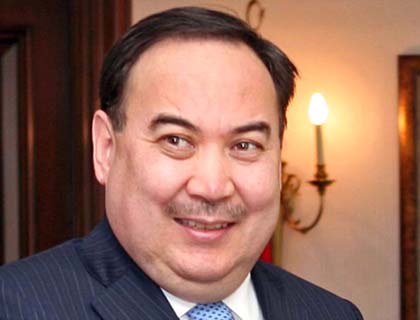Exclusive for the Daily Outlook Afghanistan
As the 2014 deadline approaches for the withdrawal of the International Security Assistance Force (ISAF), the international community is increasingly focused on the challenges of creating self-sustaining mechanisms for building long-term security in Afghanistan based on economic development and regional cooperation. However, this positive trend should not disguise the continuing fragility of Afghanistan and the security threats that it still poses to its own people, its immediate neighbourhood and the wider region.
The recently agreed deal between the US and Afghanistan on providing US military and civilian assistance up to 2024 is a clear signal that the US is committed to long-term support for Afghanistan to reconstruct the latter with broader help of its neighbors and regional partners, playing a more prominent role in areas such as counter-narcotics, education, re-generation of agriculture and development of transportation infrastructure.
The stakes are high and the problems are not diminishing. Afghanistan's ethnic divisions are growing and many Afghans fear a return to civil war as the Taliban's insurgency continues.
The economy is still largely donor-driven and the withdrawal of most foreign forces will inevitably have severe consequences for those sectors that supply them. Considerable effort has been invested in building up Afghan military and police forces to take responsibility for the security situation as international forces leave, and we hope that they will manage to cope with their increased roles. Therefore, it will be extremely important for coalition countries and international community to continue to support financially the Afghan National Security Forces as well as reconstruction efforts in this war-torn nation.
The development of the Northern Distribution Network (NDN) as a supply route to Afghanistan through Russia and Central Asia, including Kazakhstan, has played a vital role in sustaining ISAF's operations in Afghanistan. Kazakhstan was instrumental in securing NDN and providing other transit possibilities. It also supports the further expansion of this route, including new interconnections and harmonization of regional transportation network for civilian goods in future. This process has stimulated regional co-operation and will leave behind an important basis for future trade links between South and Central Asia. Restoring Afghanistan's links with the outside world to ensure that it benefits from regional economic growth is an important priority.
Improved border connections will only assist Afghanistan and its neighbours if a reliable border management system is in place. Without it, the prospects are grim. The export of narcotics from Afghanistan tells its own tragic story. The UN Office on Drugs and Crime has estimated that every year around 90 tonnes of heroin produced in Afghanistan are transported through Central Asia. Despite the international community's efforts over the past decade, the opium trade remains the largest source of Afghanistan's GDP and is doing untold damage far beyond Afghanistan's borders.
Various regional assistance programs in border management like BOMCA, EXBS, CABSI, CADAP as well as recently established Kazakhstan international anti-drug and precursor organization CARICC (Central Asia Regional Information and Coordination Center) are actively engaged in dealing with these issues, but the main focus needs to be Afghanistan as a source-country.
Without economic reconstruction, Afghanistan will not be able to develop and sustain the institutions that it requires to achieve national reconciliation and peace. The vital starting point is agriculture. Before the troubles of the last 30 years, Afghanistan had a well developed agricultural sector and was largely self-sufficient in food production. In the meantime, many farms have fallen into disuse, irrigation systems have been destroyed and expertise lost. Farmers today can only meet around 30%-40% of the country's food needs.
The fact that only 12% of Afghanistan's territory is arable land, mostly concentrated in river valleys, makes it possible to concentrate assistance on key areas where intensive agricultural production can be achieved. Kazakhstan is training agricultural specialists as part of its bilateral assistance program to Afghanistan and has also provided significant volumes of agricultural seed.
Much more needs to be done in this area by the international community. Afghanistan's population is 70%-80% rural and encouraging Afghans back into productive employment on the land will have a major economic impact and improve the security situation. The growth of high-value crops and the development of processing industries will also make it less attractive for Afghan farmers to cultivate the opium.
Kazakhstan also supports continued investment in education in Afghanistan. Significant progress has been made, for example, in recent years in restoring the education system and opening it up again to women and girls. However, Afghanistan has a heavy legacy to overcome: illiteracy levels remain alarmingly high with an estimated 74% of the population lacking basic reading and writing skills. As part of a $50 million program Kazakhstan is offering professional training for 1,000 Afghan students in its higher education institutions in areas ranging from engineering to medicine.
The international community must remain fully committed to supporting Afghanistan's efforts to stabilise itself. In particular, it must keep up the pressure to find an intra-Afghan political solution to overcome the country's divisions. Afghanistan is still not stable but we have it in our collective power to stabilize the country and prevent another nightmare scenario. We have to help Afghans to help themselves. We have to look beyond 2014 and Kazakhstan is very much on this course.

